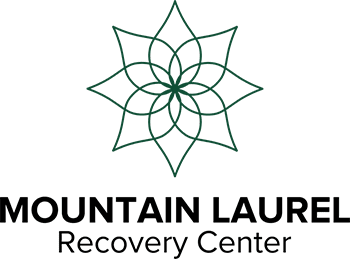
Risk Factors for Substance Use Disorders
Addiction doesn’t discriminate based on age, gender, race, or socioeconomic status. However, there are certain risk factors that increase the odds that a veteran might struggle with a substance use disorder.
- Lack of a strong support system. Making the transition back to civilian life can be difficult, but it’s especially challenging for a veteran who doesn’t feel well supported by families and friends.
- Chronic pain. Pain has a negative overall effect on a veteran’s quality of life, and prescriptions for opioids are often misused.
- Traumatic Brain Injury (TBI). Brain injuries can have lasting effects on how a person thinks, feels, and behaves. Veterans may turn to drugs or alcohol to self-medicate the symptoms of their condition.
- Loss of a close friend in combat. Grief is a common trigger for addiction, and witnessing the death of a friend adds to the trauma a veteran has experienced.
- Military sexual trauma. Although female veterans are more likely to be victims of military sexual trauma, male veterans may also be affected. In either case, this experience increases the risk of drug or alcohol addiction.
- History of previous mental health issues. Veterans who struggled with depression or anxiety before their service or who have family members with mental health concerns have a higher risk of problems with substance abuse when they return to civilian life.
Signs a Veteran May Have a Substance Use Disorder
Substance use disorders often develop over an extended period of time, so it’s important to be alert to the signs of a potential problem. Signs that a professional evaluation may be necessary include:
- Mood swings. Erratic moods are a common sign of drug or alcohol abuse, as well as an indication that a veteran might have a co-occurring mental health disorder.
- Changes in personal appearance. Malnutrition, dehydration, lack of sleep, and poor personal hygiene can negatively affect a veteran’s appearance when they are abusing drugs or alcohol
- Trouble at work. Substance abuse affects judgment, concentration, and problem-solving skills—which often leads to poor work performance.
- Strained personal relationships. It’s common for veterans with substance use disorders to isolate themselves from friends and family to spend more time using. They may also strain relationships by ignoring social commitments or picking fights when confronted about their behavior.
- Financial problems. Veterans who are abusing drugs and alcohol often drive themselves into debt or leave bills unpaid due to the amount of money they’re spending to feed their addiction.
- Self-harm or thoughts of suicide. Veterans who are using drugs or alcohol to self-medicate the symptoms of mental health disorders eventually find that this approach only increases the intensity of their symptoms. In some cases, this leads to thoughts of self-harm or suicide.
Why Mountain Laurel Recovery Center Is the Right Choice for Addiction Treatment
At Mountain Laurel Recovery Center, we’re committed to meeting the unique needs of veterans. Some of the steps we’ve taken to tailor our services to the veteran population include:
- Earning a PsychArmor certification. Our Pennsylvania drug and alcohol addiction treatment center is certified by the PsychArmor Institute as a “Veteran Ready Healthcare Provider Organization.” This designation means that our staff members have completed specialized training to develop a better understanding of how to treat and engage with the veteran-based population.
- Creating a Tactical Recovery program option. We are also one of several Summit BHC facilities offering a Tactical Recovery program providing comprehensive substance abuse and mental health treatment for those who’ve bravely served their country. The Tactical Recovery program offers a culturally competent and trauma-informed environment using evidence-based practices that are proven to promote a lasting recovery among veterans. Graduates of the program are connected to ongoing local resources so they have the support they need to successfully transition back to independent living.
- Partnering with veterans treatment courts. Unfortunately, veterans who struggle with substance abuse issues often find themselves facing legal charges related to their addiction. However, Mountain Laurel Recovery Center works with veterans treatment courts to help veterans get the support they need while keeping them from being sent to prisons where addiction treatment resources are few and far between.
- Accepting VA health benefits. Like other Summit BHC facilities, Mountain Laurel Recovery Center has been approved to accept VA health benefits through the Community Care Network (CCN) and is approved to accept in-network coverage with Tricare.
Mountain Laurel Is Ready to Help
If you are a veteran struggling with substance abuse, we encourage you to contact our admissions office to discuss how Mountain Laurel Recovery Center can help you begin working towards a brighter future. No matter what struggles you’ve faced in the past, there’s always hope for recovery.
